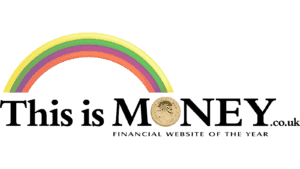Mortgages For Self Employed Dentists
- Independent mortgage specialists
- Secure the best mortgage for your circumstances
- Professional, qualified & reliable mortgage advice
Home » Self Employed Mortgages » Mortgage For Dentists » Mortgages For Self Employed Dentists

Author: Elliott Culley - Director & Mortgage Adviser of Switch Mortgage Finance
Mortgages for self-employed dentists
As a dentist it is likely you have decided to go self employed as the potential to earn a higher level of income is greater. Mortgages for self-employed dentists can be more difficult to obtain, because most mortgage lenders will want you to have a history of being self-employed before considering you for a mortgage.
If you have been self employed for a number of years you should find the process much simpler, however if you have recently turned self-employed or changed from sole trader to limited company, you may find obtaining a mortgage to be much harder.
However, there are lenders out there that can help you in this situation and so far I haven’t had a self employed dentist who I haven’t been able to help because of their income set up.
Is it harder to get mortgages for self employed dentists?
No, it is not difficult to obtain a mortgage as a self-employed dentist. However, if you went into your local high street bank, your experience might make you believe that it is.
Due to your particular circumstances you might find you don’t fit their strict criteria or you can’t borrow as much money as you thought you might be able to. Using a mortgage broker who knows exactly which lenders to approach can really make a huge difference to your expectations.
Speak to an Expert!

Contact us today for expert advice and guidance on your unique mortgage and property needs. We will work with you on a one-on-one to basis to help you find the right solution for your needs.
With our experience you can rest assured that you are in good hands when it comes to securing the financing you need for your property.
What are the main difficulties for mortgages for self employed dentists?
There are many reasons why self-employed dentists have got in contact with me in the past. Below are a few real life examples which might relate to your experiences so far and how I was able to solve these.
Self Employed for 1 year or less
The most common problem I come across is when dentists have recently become self-employed. Most lenders will ask for at least two years proof of self-employed history with some even asking for three.
As you are now self-employed its likely your earnings have increased and you want to use this towards buying a house, but if you don’t have a history of self employment, the majority of lenders will reject you.
There are mortgage lenders that will consider your income via remittance slips you receive from the practice you work at. The more of these you can provide the better as it will give the mortgage lender more of an understanding of your earning potential.
Two separate examples of this included one client who had 12 months history and another who had 9 months history. For both clients I was able to secure mortgage options. For the 12 month client I was able to use the gross income across the 12 slips. For the 9 month client I was able to acquire an accountant projection which allowed the client to secure a mortgage.
Low net profits on limited company
This has happened for a few clients where the net profits on their ltd company does not reflect current earnings.
It is hard being self employed as your proof of income for mortgage lenders is always, at the very least, 12 months out of date. In those last 12 months you may have started doing work that is earning you more money, but how can you prove this?
This leads to many self employed dentists either putting off buying a property or not maximizing their borrowing ability.
I have had some clients that have had this particular issue and again I have been able to secure a mortgage for them.
Again using remittance slips or an accountants projection can be used by some mortgage lenders to proof your more recent income and therefore borrow more money. This in turn helps you to buy a property more reflective of your current income.
Recent change from sole trader to limited company director
As if it wasn’t already tough enough being self-employed, the majority of lenders treat moving from sole trader to limited company as a similar situation to moving to self employed for the first time.
You will have some lenders that will use salary and net profits to prove income, whereas some will still use your salary and dividends. If you approach a lender that uses net profits you may be in a situation where you can’t evidence this yet as you haven’t done your first-year end yet.
This example is a little bit easier to solve. There are some lenders that will work off one year’s accounts and some will take into account your history of being a sole trader.
If you have less than a years accounts, it may be I would look at the remittance slip options or an accountants projection, but it would completely depend on your circumstances.
Why Switch Mortgage Finance
- Raising The standards of financial advice
- Making financial advice accessible to all
- Trusted & stress-free financial advice
- Friendly, personable advisors

Can I get the best rate as a self-employed dentist?
This depends on your individual circumstances. Generally speaking if you have been self employed for years than you will be able to access all the mortgages rates on the market, provided you fit the credit profile and other lending criteria.
If you fit into one of the self employed profiles above then it is unlikely you can obtain the best rates on the market, however the mortgage lenders I have used for past clients have been very competitive and close to the best on the market at the time.
Can a dentist get a bigger mortgage?
As a dentist you will be classed by some mortgage lenders as a professional and therefore a range of professional mortgages can be offered to you by some mortgage lenders.
This can include enhanced borrowing, allowing you to borrow more and giving you greater flexibilty in criteria. Just because you are a dentist doesn’t mean you to have to have a professional mortgage, but it is a handy tool to have in your back pocket giving you more choices in the mortgage market.
What level of deposit will I need?
A 10% deposit will be needed as minimum if one of the above examples applies to you. If you are looking at purchasing a flat or a new build then a 15-20% deposit will be required.
The more deposit you have the lower the interest rate will be.
What Documents should I prepare for a mortgage as a self employed dentist?
For this list I will be concentrating on income documentation that you should prepare so I can ensure the best possible outcome for you. Not all will be applicable to you as it does depend on your individual circumstances:
- Finalized Accounts (max 2 years if limited company)
- Latest Tax Calculation and tax overview (max 2 years if sole trader or limited company)
- Remittance slips (max 12 but as many as you have if less than 12)
- UDA Contract
- p60 if you have recently gone employed to self employed
Why choose Switch Mortgage Finance?
I have helped many dentists obtain the right mortgage for their circumstances. Whether purchasing or remortgaging, you’ll want access to the best products on the market. I have a proven track record of helping dentists and will be able to assist you with your mortgage needs.









